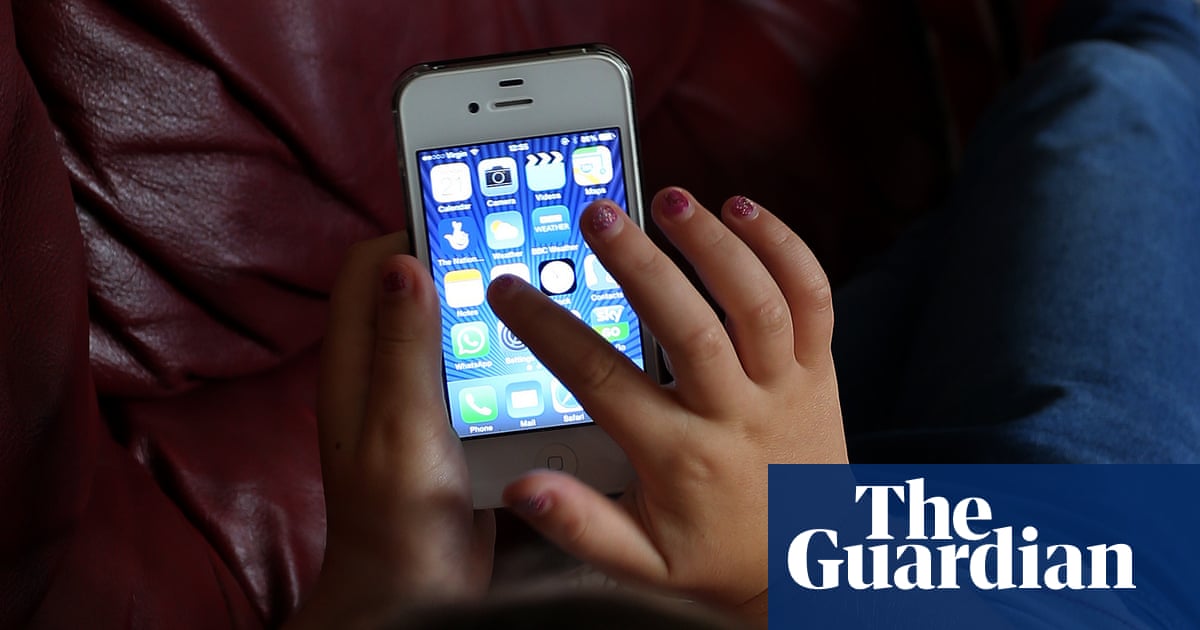Parents should be prepared to make difficult decisions over their child’s smartphone usage rather than trying to be their friend, the children’s commissioner for England has said.
Dame Rachel de Souza said this should include parents considering the example they are setting their children through their own phone usage.
Writing in theSunday Times, de Souza said that “if we are serious about protecting our children, we have to look at our own behaviour”.
She added: “The temptation as a parent to give in to a child’s pleas is a real one. Every parent has been in that position. A few more minutes in front of the television to keep them out from under your feet … A new smartphone, ignoring the nagging voice in your head that questions it, because ‘all my friends have one’, despite knowing how much time you spend on your own smartphone.
“You are not supposed to be your child’s friend. Sometimes being the parent means making difficult decisions in your child’s long-term interests, no matter how loudly they disagree.
“They need you to give them love, understanding, support and boundaries. It means listening to your child, always encouraging the height of their aspirations, but not just doing exactly what they want.”
Nearly a quarter of children spend more than four hours a day on an internet-enabled device, a survey for the children’s commissioner suggested earlier this month.
A YouGov poll of 502 children in England aged eight to 15 found that 23% spent more than four hours a day using an internet-enabled device with a screen, such as a computer, phone, tablet or gaming console.
One in four (25%) spent two to three hours a day on such a device, while a fifth (20%) spent three to four hours a day, according to the survey, which was carried out in March and April.
De Souza added that parents needed to “feel confident having challenging conversations with their children about the things they see online”.
“We need parents to give their children the opportunities to talk about violent or sexual content they see online without simply having their device confiscated, because it will find them elsewhere,” she said. “As adults we are ourselves dopamine-addicted, stuck in a cycle of scrolling yet we still have no idea of what our children are seeing.”
The education secretary, Bridget Phillipson, is looking at the effects of smartphone bans in some schools in England, a policy idea supported by the National Education Union amid growing concerns of the impact of social media on children.
The current non-statutory guidance states that schools should prohibit the use of mobile phones throughout the school day during lessons as well as break and lunchtimes, but does not say how schools should enforce the bans.
De Souza’s survey of 15,000 state schools in England found that 99.8% of primaries and 90% of secondaries limited the use of mobiles during the day, including banning phones on school grounds, requiring children to hand in phones or leave them in a secure place that they cannot access in the day, or requiring them to be kept out of sight.
De Souza, a former headteacher, has previously said banning mobile phones should be a school leader’s choice rather than imposed nationally by the government.
She wrote in the Sunday Times that she believed “schools are only part of the solution”.
“Head teachers have told me that despite their own policies they remain deeply concerned about children’s safety online, because most of the time children spend on their phones is outside school hours when they are in their parents’ care,” she said.
Last month, the Conservative leader, Kemi Badenoch, questioned why the government had opposed a Tory amendment to the children’s wellbeing and schools bill to require schools to ban the use of phones.
Keir Starmer, the prime minister, described the proposal as “completely unnecessary” as he claimed that “almost every school” already banned phones.
